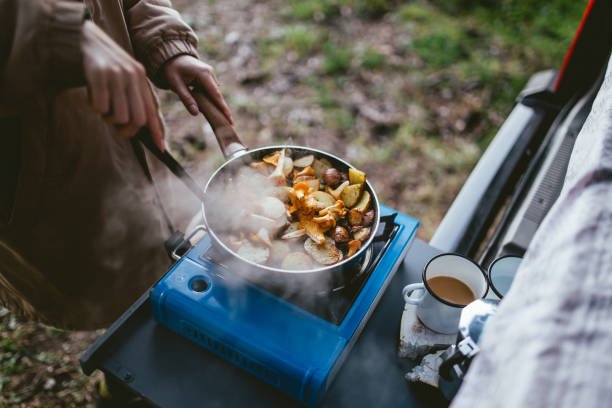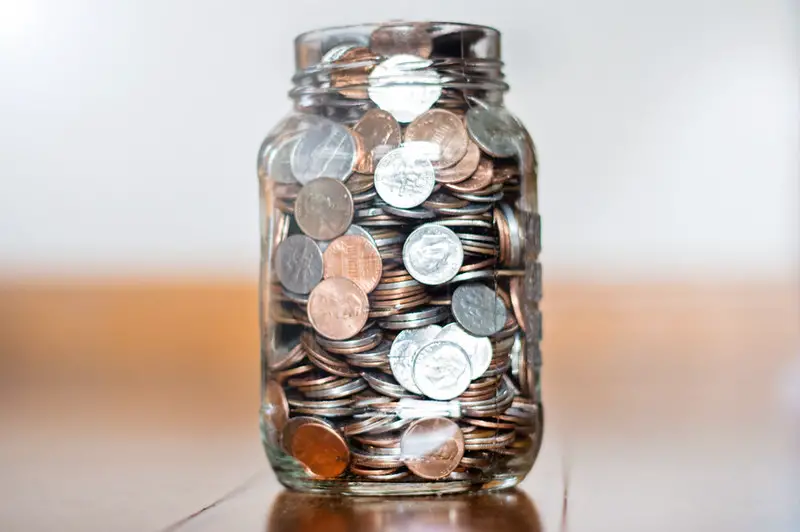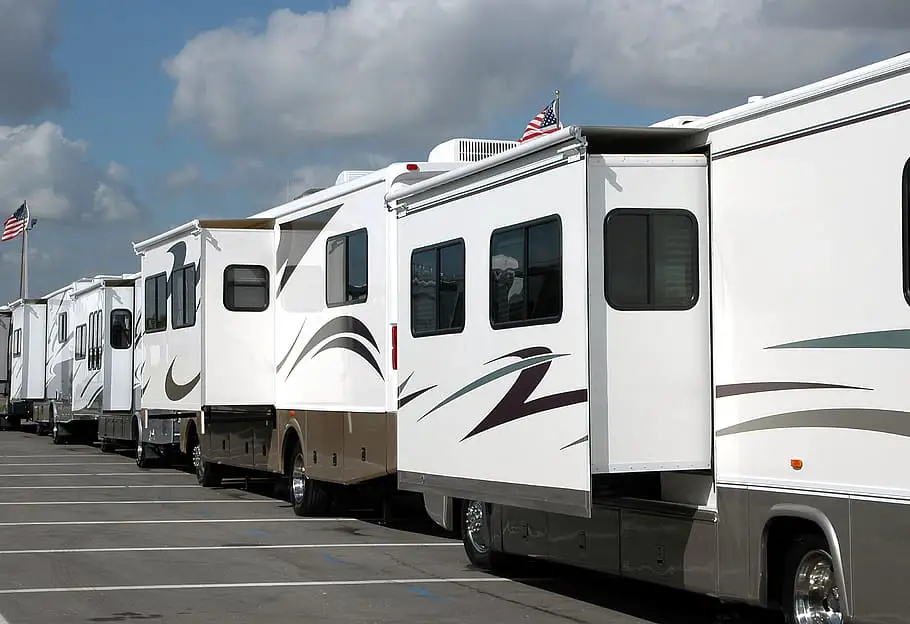Many people get into the RV lifestyle as a means to save money for a future lifestyle. This is a great way to minimize your monthly spending, but if done incorrectly it can cost more than you will be able to afford. A budget killer for many comes in the form of that 4-letter “F” word, you guessed it, FOOD. I am not sure why you went there, but let’s move on. Eating cheap while RVing can be an art form that will definitely pay off.
If you are a weekend warrior or use your RV for vacations, food cost is probably not your main concern. For those of us living in our RVs year-round, we need to get far away from that vacationer mindset when it comes to our grocery shopping.
Our goal is to help you with some ideas that are not only easy when done right, but they will save some Benjamins too.

Full-time RV living comes with a lot of expenses such as an RV purchase, maintenance, campgrounds, fuel, and of course our food. Let’s take food today and see if we can show you a few ways to make that expense a little less of a concern.
11 Ways to save money on food living in an RV
1. Avoid dining out unless it is a special occasion
Everyone loves a great meal out on the town, especially if it is a new place that you have not tried before. The problem is, restaurants have become quite expensive and it will burn through your funds quickly if you are not careful.
2. Buy fruits and vegetables that are in season to save money
Believe it or not, the price of fruits and vegetables can double or more if they are out of season. Watch the prices and know what you should be paying for certain items before just loading up your cart.
3. Plan ahead for shopping trips
Make a list before you head out the door all willy-nilly, your wallet will thank me later. If you have ever jumped in the car and headed to the grocery store, especially when you are hungry, it is never good. You get home and stuff yourself with all your favorite foods, but realize the next day you don’t have certain items to make complete meals.
4. Buy frozen, dried, or canned products
Buying these items is almost always less expensive and they last much longer than fresh foods. Unless it is for a meal you are planning for that night or the next day, stay clear of fresh foods when possible. I know fresh foods are a must for certain items, but there is a time and a place for them also.
5. Meal plan
The meal-prepper method could be the most cost-effective idea of them all if done right (see the below video).
6. Stock up during sales
If you have the room and it is an item you freeze or store, stock up during sales. Certain deals don’t come along every day so why not have a supply? Remember though, don’t buy just because, make sure it is something your family enjoys and is an actual value to you. No impulsive buying just because you see a sale sticker on it.
7. Buy in bulk
Buying items in bulk is a great way to dollar cost average your grocery shopping. Know a good price for the single item and compare it to an 8 or 10-pack of those same items. Most likely you will see that you can save a few dollars for something you are going to eventually buy anyway. Again, I know we are in an RV with limited space, but if you have the room to store it, gather it up.
8. Avoid name-brand products when possible
This is one that I really struggle with, but have found that most generic brands are really not that bad. I have a few items that I just have to have my name brand on, but I am getting better at trying new products that save me money. Generic brands are almost always much cheaper and when they are added up they can really make a difference.
9. Limit pre-made or pre-packaged items
It takes a little planning and time but making your own food always saves you in the long run. It is just a mindset that we need to get accustomed to if we want to stay on an affordable food budget. Pre-made and Pre-packaged foods cost much more than their homemade counterparts.
10. Stay clear of items with a limited shelf life
This is another area where, if foods are going to be used over the next day or 2 you can get away with it. Foods with a short shelf life are often wasted because we end up not using it all before it starts to spoil. This takes us back to planning and knowing what we will use and when.
11. Use coupons, sales, happy hours, and specials
Gather coupons as much as possible before you venture out to the grocery store. You can save quite a bit of money from sales and coupons that you clip. If you are hankering for a night out, look for happy hour deals in the area or 2 for one-dinner specials to help offset the additional cost.

Related Topics
Boondocking tips and tricks to save money
14 Cheapest camping Food Options





2 thoughts on “Eating Cheap while RVing: How to survive on a food budget”